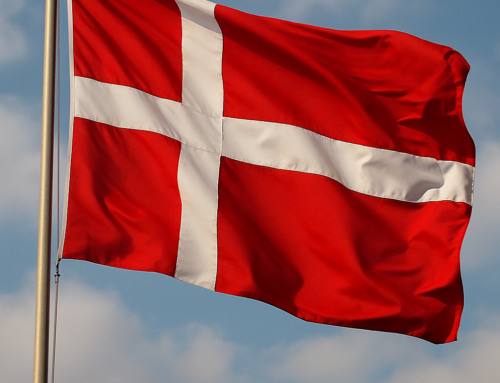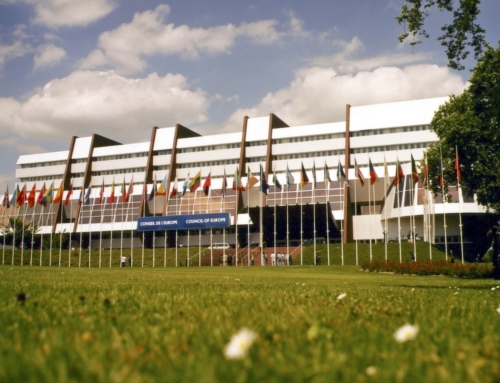21 January 2021
The Covid-19 pandemic unveiled the difficulty for parents to find a satisfying work-life balance, especially in a context of telework. Today the European Parliament has adopted a resolution with recommendations to the Commission on the right to disconnect, highlighting “the fact that particular difficulties arise when work is not tied to a specific place of work, when connectivity to work is constant and when work spills into family and private life“.
The Portuguese presidency, started this month, is also committed to tackle this topic and requested the European Economic and Social Committee (EESC), the consultative body representing the European civil society, to produce two opinions on that topic:
- “Challenges of Teleworking: organization of working time, work life balance and the right to disconnect”
- “Teleworking and gender equality”
As representative of families in Europe, FAFCE was asked to produce a written contribution the EESC Opinion on “Teleworking and gender equality” and participated in the stakeholder consultations for both the Opinions.
General words about advantages and limits of teleworking
Telework is mostly interesting thanks to the flexibility it creates. Parents with children rely on this flexibility to balance their work with family care and domestic tasks. They mostly gain efficiency in terms of time: they do not have to commute to work and can quickly switch from family work to professional work. In principle, teleworking provides a good framework to create a better family and work-life balance.
However, teleworking also increases the risk of blurring the boundary between family and work. As Eurofound researches have shown (20171 , 20192 and 20203), “employees that frequently undertake teleworking are more likely to work longer hours and overtime, have fewer rest periods, and have less predictable and more irregular schedules. The reasons for this are a heavy workload, the need to be available to work even outside of normal working hours, frequent interruptions and – to some extent – the level of autonomy. These findings show that while remote and flexible working can allow for a better balance between work and other responsibilities (for example, childcare), it can also have a negative impact on work–life balance itself”.4 The most common work–life balance obstacles for those with childcare responsibilities are long working hours and unpredictable working conditions, followed by having a demanding and exhausting job (Eurostat, 2019).5
Knowing the potential risks, clarifying a boundary between family and work life is essential: a helpful way to do so is to establish a right to disconnect. To protect workers’ right to family life, it is crucial to ensure decent working hours, the right to a private and family time outside work and the right to be unavailable. For now, only Belgium, France, Italy and Spain have legislations that includes a right to disconnect.6 A common and synchronised weekly day of rest for all EU citizens is another important step to ensure the full participation of families in cultural, social and religious life, along with physical and mental well-being (sport and leisure activities), volunteer work, strengthen social cohesion within families and communities7 and prevent burnout syndrome.
Teleworking and gender equality
The impact of teleworking on work-life balance depends on the family configuration, and can be either positive or negative. Some parents will struggle to have a time fully dedicated to work without any disruption of the “family sphere”, while others parents, especially with young children, will appreciate the proximity with their children, allowing for example breastfeeding or the monitoring of their baby.
It is a statistical reality that women do more unpaid work, especially regarding childcare. On a daily basis, 81% of women and 48% of men provide care.8 Fathers need to be allowed more possibilities to spend time with their children and to participate in domestic tasks. With regards to childcare, especially during the first years of the child, the time spent with the mother is fundamental (breastfeeding, special bond). Mothers, especially mothers of young children, are entitled to have additional support beside the one they share with the father.
In this perspective, the European Court of Justice stated on November 2020 that it was not a discriminatory practice to grant women additional maternity leaves. The Court recalled that “a Member State may reserve additional leave to the mother where that leave concerns her, not in her capacity as parent, but in connection with the effects of pregnancy and motherhood. Such additional leave must be intended to ensure the protection of the biological condition of the woman and the special relationship between her and her child during the period following childbirth“.9.
Even if we reach gender equality, is nowadays the work-life balance satisfying?
Work-life balance will always remain a struggle if domestic work and family responsibilities continue to be considered as secondary to professional work and expected to be performed during the free time. Parents work is prized during the pandemic and the lockdown, but this recognition must lead to something concrete, a material support, be it through the extension of the eligibility to maternity and paternity leave and parental leave (in Europe, half of parents are constrained to come back to work full-time with no flexible working arrangements),10 more access to childcare services or flexible working arrangements and the recognition of the value of unpaid family work as a particular category of work that gives access to rights (long-life learning, eased return to the labour market).
Read more on our work here :
- FAFCE Dialogue with Elena Bonetti, Italian Minister for Family and Equal Opportunities: “The Families need to be seen as subject who are able to create the future”
- FAFCE recalls the role of the family when reinforcing Social Europe
- FAFCE highlights the role of parents for the EU strategy on the rights of the child (2021-2024)
- FAFCE Board Resolution | Family is the heart of the post-pandemic recovery
Sources:
1 Eurofound (2017b), Work–life balance and flexible working arrangements in the European Union, Publications Office of the European Union, Luxembourg.
2 Eurofound (2019), Further exploring the working conditions of ICT-based mobile workers and home-based teleworkers, Dublin.
3 Eurofound (2020a), Living, working and COVID-19: First findings – April 2020, Dublin.
4 Eurofound (2020), Regulations to address work–life balance in digital flexible working arrangements, New forms of employment series, Publications Office of the European Union, Luxembourg, p. 4.
5 Eurofound (2020), Regulations to address work–life balance in digital flexible working arrangements, New forms of employment series, Publications Office of the European Union, Luxembourg, p. 5.
6 Eurofound (2020), Regulations to address work–life balance in digital flexible working arrangements, New forms of employment series, Publications Office of the European Union, Luxembourg, p. 13.
7 European Social Charter, Council of Europe (1961). Article 2 – The right to just conditions of work The Contracting Parties undertake „1. to ensure a weekly rest period which shall, as far as possible, coincide with the day recognised by tradition or custom in the country or region concerned as a day of rest.“
8 Eurofound, European Quality of Life Survey 2016 – Quality of life, quality of public services, and quality of society, Publications Office of the European Union, Luxembourg, 2018.
9 Court of Justice of the European Union, Judgment in Case C-463/19 Syndicat CFTC v CPAM de Moselle and Others, Luxembourg, 18 November 2020.
10 European Institute for Gender Equality, Gender Equality Index 2019 Work-life balance, 2019, p.16.







